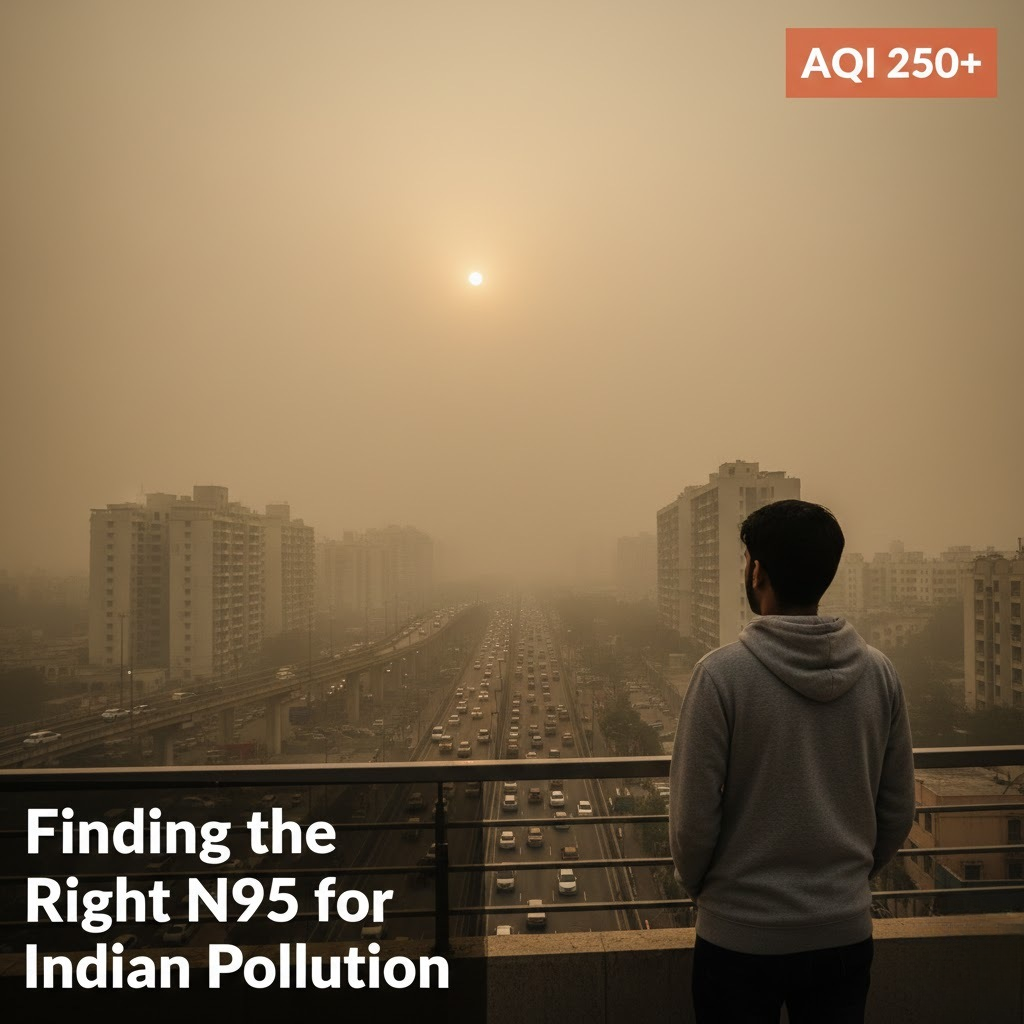Air pollution is often associated with respiratory diseases and cardiovascular issues, but its impact on mental health is equally alarming. Research has shown that poor air quality contributes to stress, anxiety, depression, and cognitive decline. (Source: https://pmc.ncbi.nlm.nih.gov/articles/PMC10375903/)
As cities continue to experience dangerously high levels of PM2.5, VOCs, and airborne toxins, understanding how air pollution affects brain function and emotional well-being is more important than ever.
This blog explores the connection between air pollution and mental health, backed by scientific research and real-world data, while also highlighting ways to reduce exposure and improve overall well-being.
The Science Behind Air Pollution & Mental Health
Shocking Statistics on Air Pollution & Mental Health
- A 2023 study published in The Lancet Planetary Health found that long-term exposure to air pollution increases the risk of depression by 16% and anxiety disorders by 11%.
- According to the WHO, 97% of the world’s population breathes air that exceeds safe pollution levels, contributing to widespread mental and physical health issues.
- A Harvard University study linked PM2.5 exposure to a 34% higher risk of dementia, demonstrating the long-term cognitive impact of air pollution.
-
Cities with high AQI levels report higher rates of stress-related hospital visits, highlighting the connection between air pollution and mental well-being.
How Airborne Pollutants Impact Brain Function
Air pollution doesn’t just affect lung health—it has a direct impact on the central nervous system, influencing mood, memory, and cognitive function. Here’s how:
- Fine particulate matter (PM2.5, PM10) enters the bloodstream through the lungs and reaches the brain, causing inflammation and oxidative stress.
- Neurotransmitter disruption—pollutants interfere with serotonin and dopamine production, which regulate mood and emotional balance.
- Long-term exposure to polluted air has been linked to an increased risk of depression, anxiety disorders, and even neurodegenerative diseases like Alzheimer’s and Parkinson’s.
Common Mental Health Effects of Poor Air Quality
Polluted air has a far-reaching impact on emotional and cognitive well-being:
- Increased Stress & Anxiety – Higher pollution exposure correlates with elevated cortisol (stress hormone) levels, leading to chronic stress.
- Sleep Disruptions – Poor air quality reduces oxygen intake, making it harder to fall and stay asleep, resulting in fatigue and irritability.
- Brain Fog & Reduced Focus – Airborne toxins impair cognitive function, memory retention, and decision-making abilities.
- Higher Risk of Depression – Long-term exposure to traffic pollution, industrial emissions, and indoor toxins has been linked to higher depression rates.
-
Neurodevelopmental Effects in Children – Children growing up in polluted environments show lower IQ, ADHD tendencies, and slower cognitive development.
How Clean Air Can Improve Mental Well-Being
Breathing cleaner air can positively influence brain function and emotional well-being in several ways:
- Boosts serotonin & dopamine levels, leading to a happier mood and emotional balance.
- Enhances cognitive performance, memory retention, and mental clarity.
- Reduces stress & fatigue by promoting higher oxygen intake and lowering inflammation.
- Improves sleep quality, allowing the brain to recover and function optimally.
-
Lowers the risk of neurodegenerative diseases by preventing chronic exposure to harmful airborne pollutants.
Who Is Most Affected by Air Pollution & Mental Health Decline?
Certain groups are more vulnerable to the negative mental health effects of air pollution:
- Students & Professionals – Reduced air quality affects concentration, learning abilities, and productivity.
- Urban Commuters – Daily exposure to traffic fumes and high AQI levels increases stress and fatigue.
- Children & Elderly Individuals – More prone to cognitive decline, learning disabilities, and mood disorders.
- Individuals with Anxiety or Depression – Polluted air has been found to exacerbate symptoms of mental health conditions.
Ways to Reduce Exposure to Air Pollution for Better Mental Health
- Monitor AQI levels and limit outdoor activities on high-pollution days.
- Improve indoor air quality by reducing dust, mold, and chemical pollutants.
- Use air-purifying plants like aloe vera, snake plants, and peace lilies to filter toxins indoors.
- Stay hydrated and eat antioxidant-rich foods to counteract oxidative stress from pollutants.
-
Invest in proper ventilation and filtration methods to ensure cleaner indoor air
Prioritizing Mental & Physical Health Through Clean Air
The impact of air pollution on mental health is often overlooked, but scientific evidence confirms its crucial role in mood regulation, cognitive function, and emotional well-being. By reducing exposure to harmful pollutants, individuals can enhance brain health, improve focus, and lower stress levels.
Prioritizing clean air solutions, whether through better ventilation, pollution awareness, or personal protective measures, is essential for a healthier mind and body in today’s world.
✅ Make clean air a priority for a better, healthier life!






Share:
India’s Most Polluted Cities – How to Stay Safe with Personal Air Purification
What is Chronic Obstructive Pulmonary Disease (COPD),Causes & How to Manage it